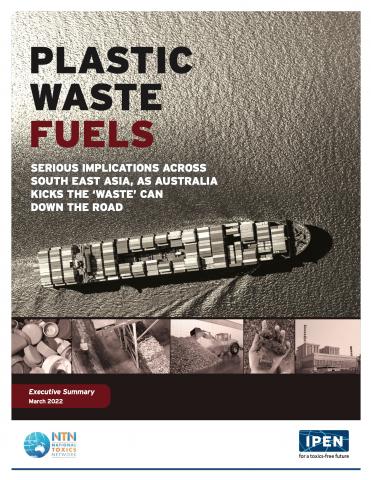
Gothenburg, Sweden The International Pollutants Elimination Network (IPEN) has published a series of studies that reveal how Australia’s new waste policies are driving massive investment in plastic waste-to-fuel processing, and that the country’s exports are threatening waste management in ASEAN countries. This is despite the country announcing it would stop exporting unprocessed wastes in 2020, after China and other Southeast Asian countries banned plastic waste imports, starting in 2018.
Jane Bremmer, campaign coordinator for Zero Waste Australia, says: “Australia has effectively rebranded plastic waste as refuse-derived fuel (RDF), so it can continue to trade waste exports.”
The NGO adds that Australia’s stance is undermining the Basel Convention on the Control of Transboundary Movements of Hazardous Wastes and their Disposal, as well as global climate change commitments.
Ms. Bremmer continues: “We are concerned about Australia's ‘trojan horse’ plastic waste policy and the ability of Southeast Asian countries to safely handle refuse-derived fuel wastes. We also want to be clear that burning RDF cannot be considered green, or a low carbon source of electricity or energy. RDF will compete with and displace clean, renewable energy in Australia and the Asia-Pacific region, and the lack of any international standards or regulatory framework for its production, trade and use, is a threat to health, environment and human rights, especially in developing countries.”
